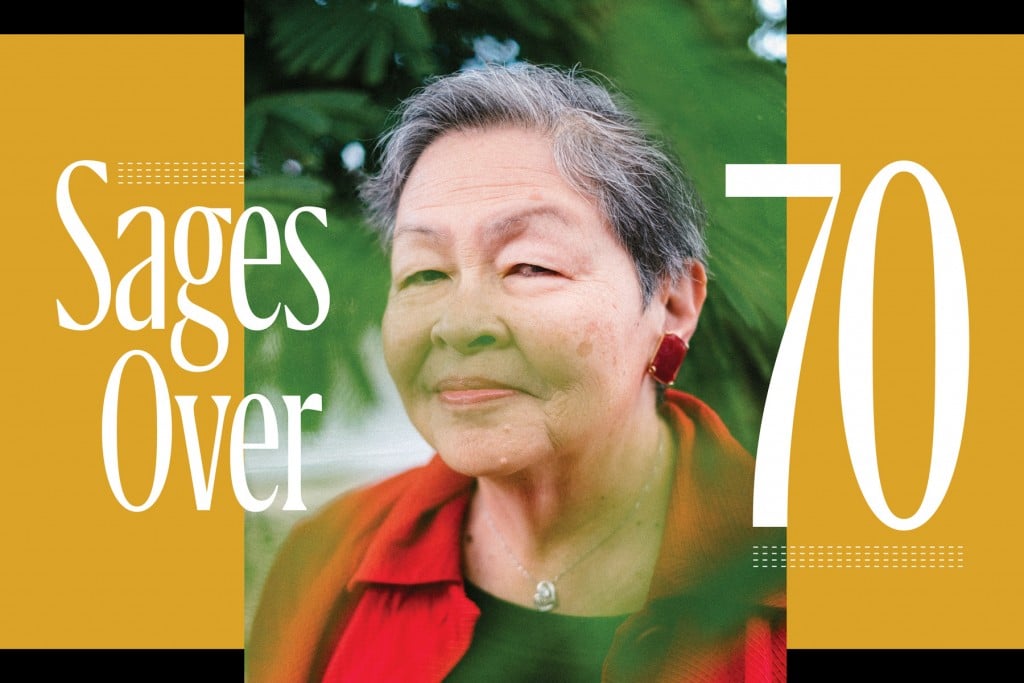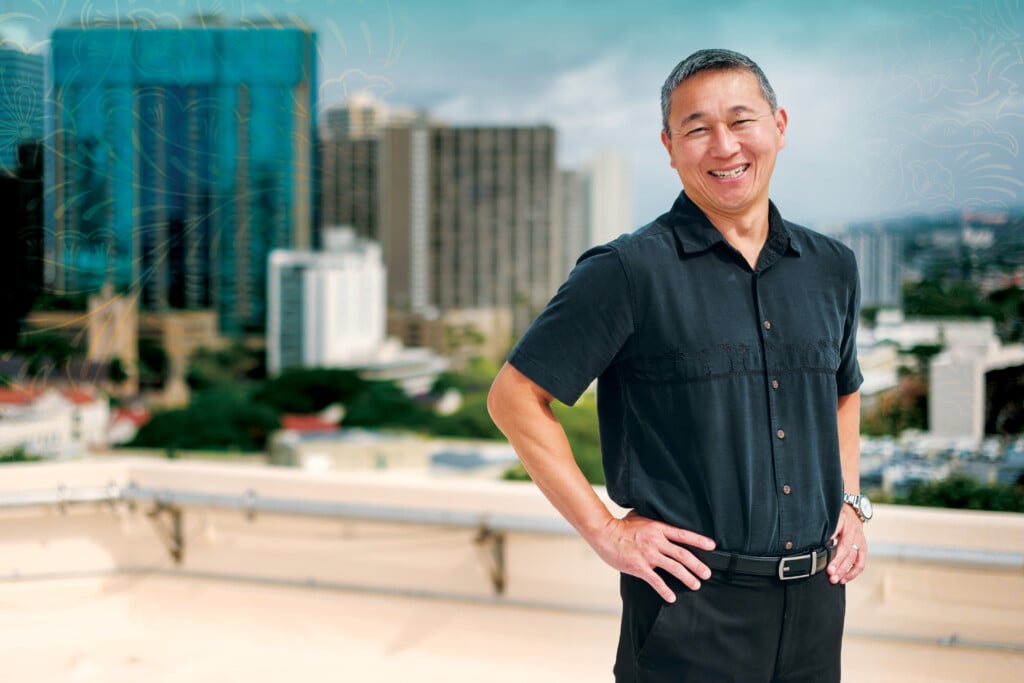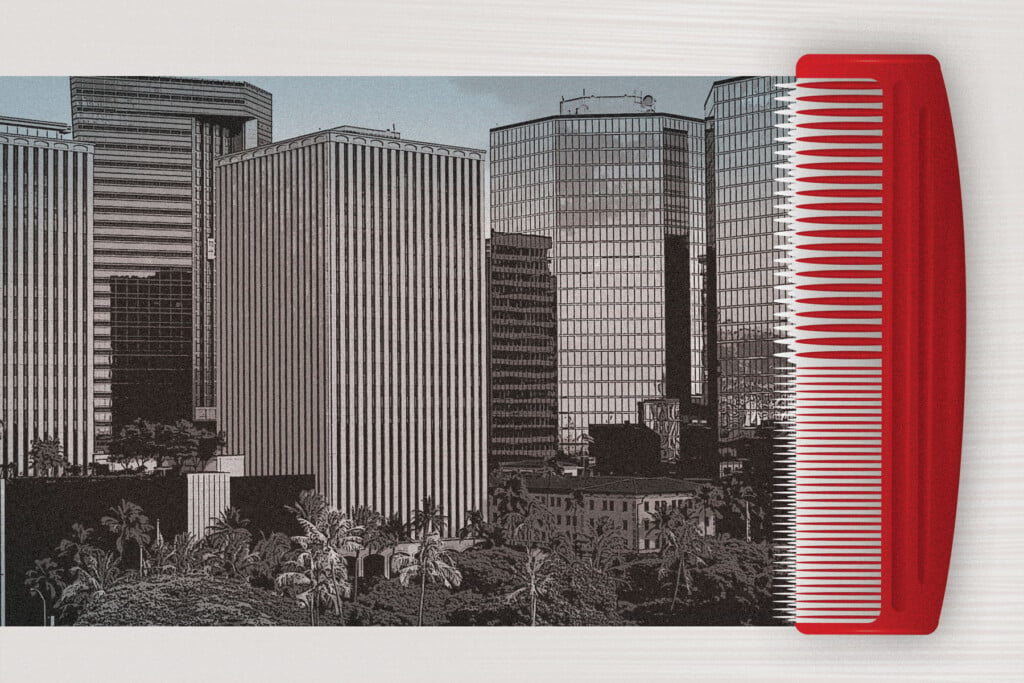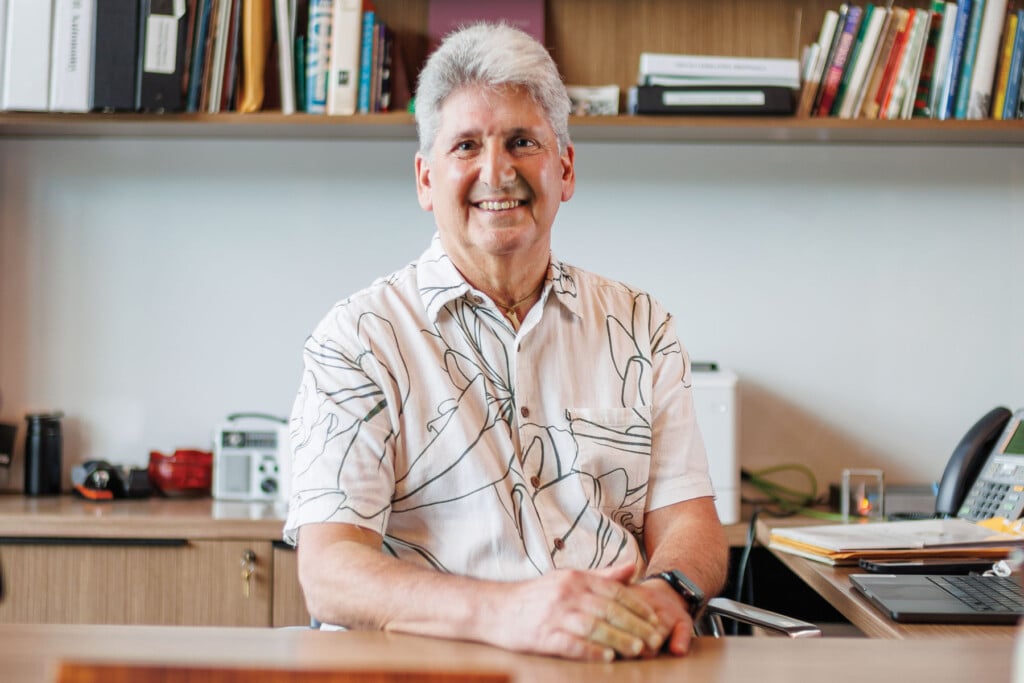Sages Over 70: Puanani Burgess
The tireless advocate for local communities and equal justice continues to work as a mediator with no thoughts of retiring

Second in a series of profiles of Hawai‘i’s “Sages Over 70”
Puanani Burgess has been seen working to provide equal justice and opportunities for communities since she was a law student. Now 74, she says she is busier than ever, with a waiting list of people who seek her help as a mediator.
Though she prefers in-person connections, Burgess has continued her mediation and conciliation work by teleconference during the pandemic.
“I don’t think I have any intentions of retiring, whatever that is,” she says with a soft laugh.
Burgess began her activism by working to stop the bombing of Kaho‘olawe 50 years ago, and has built processes so communities could help determine their own future. A recent effort included working with university groups that advise freshmen.
“I do a lot of support work for them so they can do support work for people coming in,” she says. It’s part of what she calls “building the beloved community,” her inspiration to deepen understanding and empathy between diametrically opposed groups.
Her work in this area is so effective that Katrina Abes is turning Burgess’ material into a course for first-year students throughout the UH system.
“It provides space to explore one’s gifts and potentials,” says Abes. “She tells a story about her dojo that she was part of a long time ago. The head priest called everyone together and brought out this log and asked all of the priests: ‘What does the wood carver do with this log?’ One said, ‘Oh, they make something beautiful out of it.’
“ ‘Yes and no,’ said the head priest. ‘Actually the wood carver takes out all the trash. That log is already beautiful. They take out all the trash so they can see the beauty.’ That’s what Pua does. She helps us dump out all the trash we may have held in for so long, to help us begin to see the beauty in ourselves.”
As a young woman, Burgess studied law and became adept at writing contracts, applying for grants and understanding the needs of business. Those invaluable tools helped her negotiate on behalf of the community for important services as developers eyed the Wai‘anae Coast in the 1970s, ’80s and ’90s.
“Out of that adventure came the whole notion of community-based economics.” – Puanani Burgess, Community Organizer, Mediator and Poet
“In my third year of law school I decided it’s not really something I want to do, so I quit and came back to Wai‘anae and started to work in this community,” says Burgess. “But the law allowed me to read documents well and put proposals for funding together, or manage a not-for-profit. I started helping people put together documents for a variety of organizations.”
She helped start a preschool, a community mental health center, a farm and about a dozen other community organizations that needed funding.
“Out of that adventure came the whole notion of community-based economics,” says Burgess. “That was the time when West Beach (which would become Ko Olina) was just beginning and the community people were fighting against big development. A lot of the people I started to work with in the community were the group that said ‘no’ to them. But out of that process came saying what it is that we did want.”
Tommy Holmes, a legendary Hawai‘i waterman and a founder of the Polynesian Voyaging Society, advised the fledgling protesters to talk to decision-makers, otherwise nothing would change, says Burgess.
“Tommy introduced us to Kenny Brown – he was at the top of his game in politics, finance, health – and he introduced us to business leaders Bobby Pfeiffer and Herb Cornuelle, and we were able to sit at the table with the people who were making decisions about what was happening in our community. We began to negotiate for community- based economic development and economic infrastructure.”
Dawn Mahi, senior program officer for the Consuelo Foundation, has seen Burgess in action, teaming with her to help at-risk families and individuals. Burgess’ input has been particularly important during the pandemic, says Mahi.
“She worried about the danger of kūpuna becoming irrelevant because many don’t know how to engage in those internet platforms, so she worked out a curriculum … for us to help them to connect,” Mahi says.
Burgess’ work in community development is a great achievement, but it is her three children who make her most proud. All have come back as adults to work in Wai‘anae in various capacities.
“My husband’s other nieces and nephews work in the community also,” says Burgess. “When you come to Wai‘anae and you think of social programs you are bound to meet a Burgess.”






